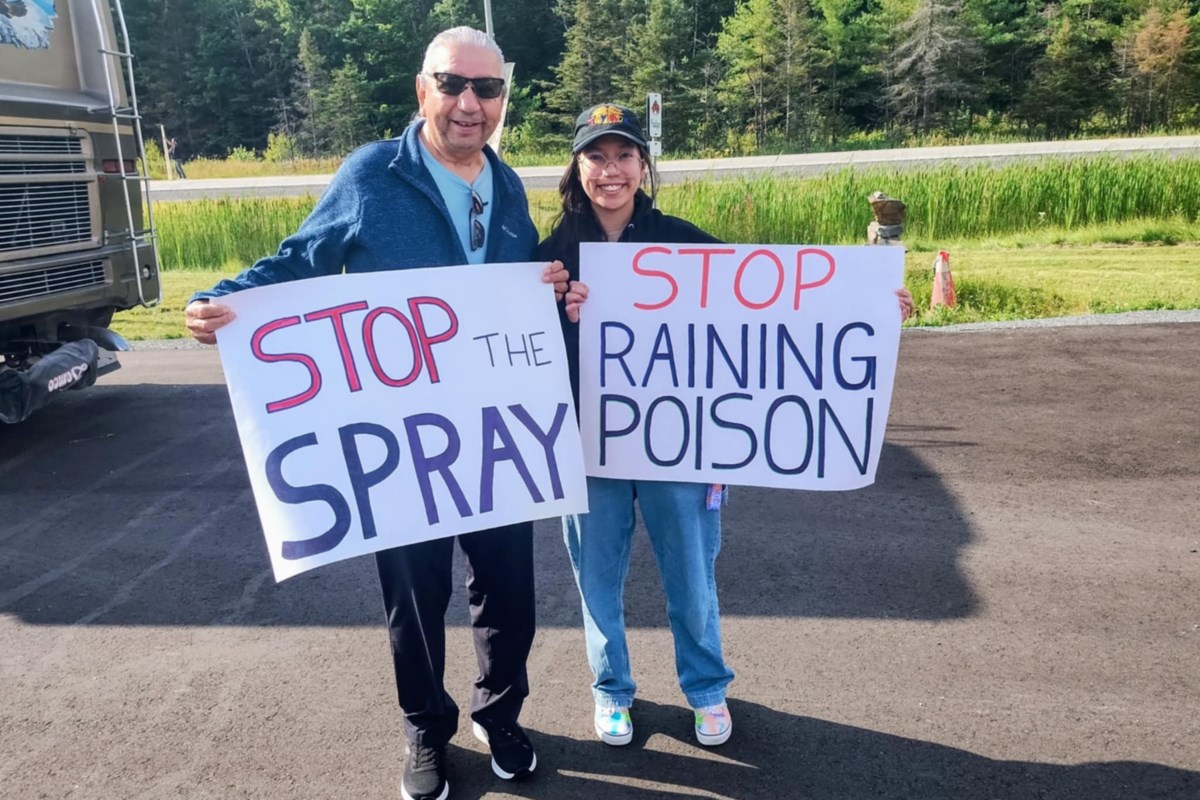A planned aerial herbicide spray across parts of Northern Ontario has been abruptly halted for the North Shore, Serpent River and Pinelands forests following a wave of protests
ElliotLakeToday has learned that the planned glyphosate spraying for some parts of northeastern Ontario has been cancelled.
The Ministry of Natural Resources and Forestry issued a public notice saying it planned to kick off aerial herbicide spraying in the North Shore, Serpent River and Pineland forests starting on Monday, Aug. 18.
But, reports from the Sagamok Anishnawbek website indicated the spraying in those areas has been called off for this year only.
ElliotLakeToday reached out to the MNRF by email regarding the cancellation and was told that inquiries about herbicide spraying cancellations should be directed to the license holder, Interfor, which is one of the world’s largest forest products companies with operations in Canada and the USA.
Isaac Murdoch, an Indigenous activist hailing from Serpent River, told ElliotLakeToday he received a message from William Byman, the general manager of Northshore Forest for Interfor.
The email confirmed the cancellation of this year’s aerial spraying for the North Shore, Serpent River, and Pinelands forests. It noted that the decision was made due to concerns regarding contractor safety.
This announcement comes on the heels of a significant protest that occurred along Highway 17 on Aug. 14, which garnered substantial media coverage and amplified the voices of many Indigenous people and their supporters.
Organized by Traditional Ecological Knowledge elders, the demonstration aimed to highlight the potential environmental impacts of aerial spraying on the delicate ecosystems of the forests.
Protesters raised alarms about the dangers that aerial spraying poses not just to local wildlife and plant life, but also to the cultural and spiritual ties that Indigenous communities have with their ancestral lands.
The elders hope that the collaborative efforts of the TEK community, the Serpent River community, and local environmental advocates will inspire the MNRF to reconsider its approach to managing the forests.
The halt of aerial spraying in this area would be seen as a victory for the Stop the Spray organizers and those advocating for sustainable practices that respect Indigenous knowledge and land stewardship.
However, not all spraying has been called off. It’s still scheduled for other areas of northern Ontario.

